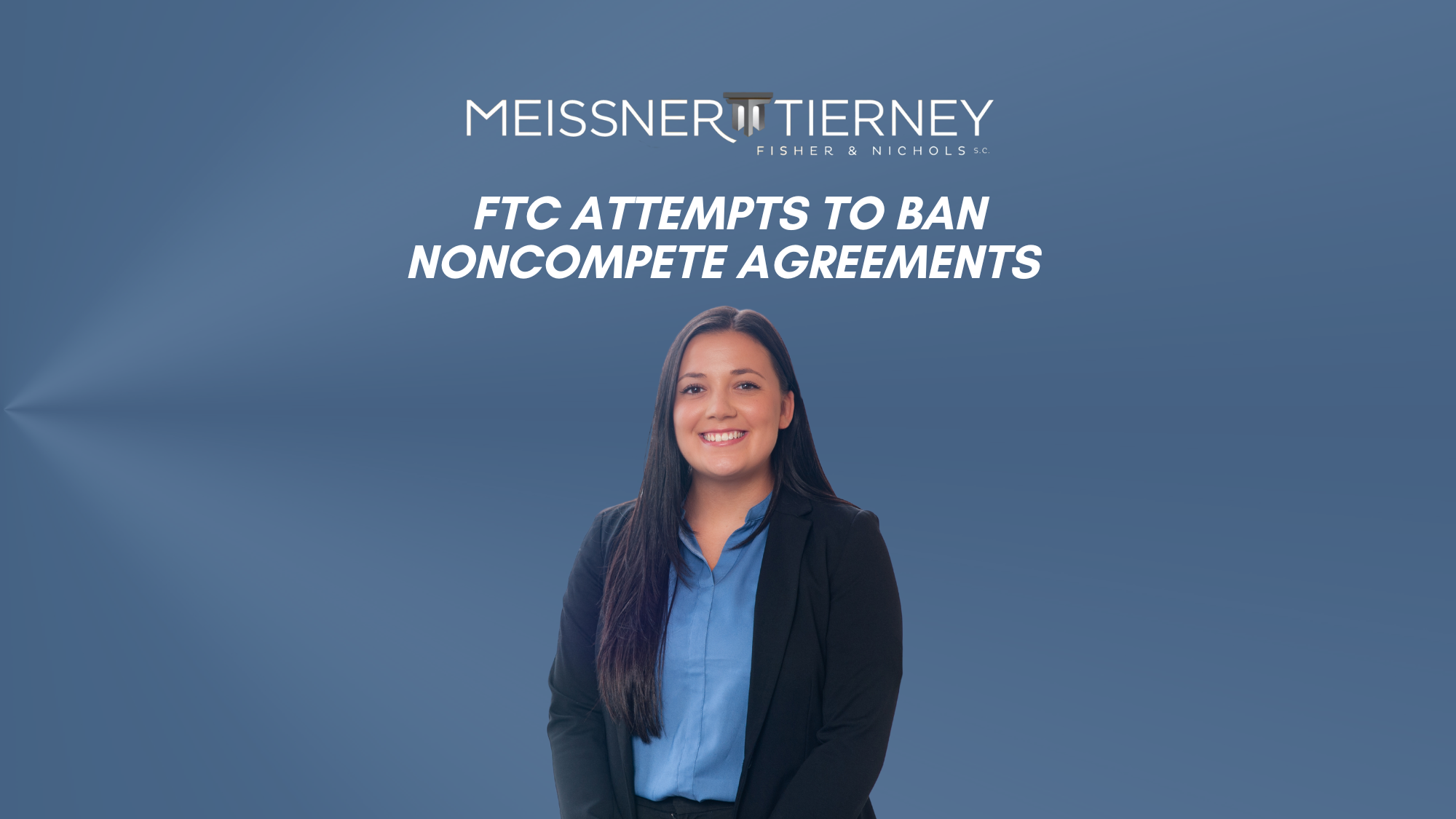Historically, noncompete agreements have been controlled and regulated by state law. In Wisconsin, noncompete agreements are generally considered lawful but must be “reasonable.” At common law, Wisconsin permits noncompete agreements unless it constitutes an unreasonable restraint on trade.[i] However, under the controlling Wisconsin statute, noncompete agreements will be enforceable only if they are reasonably necessary for the protection of the employer, if they do not extend beyond a reasonable period of time and territory, and if they are not unreasonable to the employee or the general public.[ii] Further, Wisconsin law also allows for agreements that prohibit solicitation of employer clients and/or customers as well as the use of nondisclosure agreements.[iii]
The Federal Trade Commission (FTC) recently released a Proposed Rule that could change the way Wisconsin employers seek to protect their business as well as retain employees. Under the Proposed Rule, the FTC seeks to categorically ban employers from using noncompete agreements for not only employees but also independent contractors, interns and volunteers with the only limited exception being for the sale of a business.
Under this Proposed Rule, noncompete agreements are defined as “a contractual term between an employer and a worker that prevents the worker from seeking or accepting employment with a person or operating a business after the conclusion of the worker’s employment with the employer.”[iv] Notably, this is a broad definition and could potentially serve to implicate employers’ use of nonsolicitation, nondisclosure and even repayment of training cost provisions in their agreements, depending on the scope of those provisions.[v]
If the Proposed Rule as it is currently written does become a final rule, it will supersede all state laws pertaining to noncompete agreements.[vi] As a result, Wisconsin employers could no longer enter into noncompete agreements with their employees and would also be required to rescind any noncompete agreements currently being enforced.
The Proposed Rule contemplates a 180-day recission period for the noncompete agreements themselves as well as a 45-day period after the date of the rescission period in which employers would need to formally notify all current employees as well as former employees who are subject to noncompete agreements that the agreements are no longer valid.[vii] Employers would also need to evaluate other provisions in their employment agreements that may be subject to this prohibition such as nonsolicitation provisions, nondisclosure provisions and repayment of expenses provisions in order to determine if such provisions will require revision or removal.
For now, the FTC is seeking public comment on the proposed rule through March 10, 2023, and will then issue a final rule based on its review of such comments. Nevertheless, it seems likely that if this rule becomes final, it will be subject to challenge beyond the scope of the FTC’s statutory scope of authority, as well as on constitutional grounds.
—
[i] Behnke v. Hertz Corp., 70 Wis. 2d 818, 235 N.W.2d 690 (1975).
[ii] Wis Stat. 103.465.
[iii] Star Direct, Inc. v. Dal Pra, 2009 WI 76, 319 Wis. 2d 274, 767 N.W.2d 898, 07-0617, Friemuth v. Fiskars Brands, Inc., 681 F. Supp. 2d 985 (2010).
[iv] Non-Compete Clause Rule, 16 CFR Part 910 (proposed January 5, 2023).
[v] Id.
[vi] Id.
[vii] Id.






